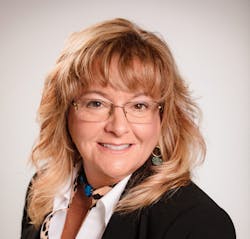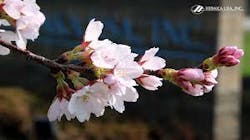A Small Business Is Doing Well, But Finding Workers Is Another Story
For the past 30 years, Hidaka USA, Inc. Inc, based in Dublin Ohio, has managed to not only navigate the ups and downs of a complicated business cycle, but it has thrived.
Established in 1989 as a supplier of prototypes, the company designs and manufactures steel and aluminum parts including prototypes, simple stampings and complex assemblies. Over the years it has expanded its workforce, equipment, technical expertise and infrastructure to support mass production demands.
As a result of its experience in the automotive and rail sectors, business is growing. “We have some large projects that will keep us busy for the next two years,” explains Diane Rosso, vice president - Administrations. “Finding employees is difficult.”
Small businesses like Hidaka are struggling to fill job openings. In the March 2022 report from the National Federation of Independent Business, an organization that advocates for small and independent businesses, 47% of owners said they had unfilled jobs.
Changing Recruiting Techniques
Traditionally Hidaka would work with staffing agencies in an arrangement that worked well for the company. The temporary to permanent status method gave the company and the employee time to determine if there was a good fit. But the worker shortage is getting more difficult, and agencies are having trouble finding workers. Teaming up with local schools had provided workers in the past. However, finding students to enter these programs is a challenge not only in this region but across the country. They even tried an online job platform, but that didn’t pan out either.
Reaching out to specific schools, such as the Tolles Career and Technical Center in Plain City, Ohio, also had worked in the past and is something the company would look to again. “At this point, we are open to any path that would help us.”
Cognizant of current conditions, the company has switched from requiring four to five years of experience in manufacturing to not having any experience. “If someone is a good candidate, we will train them and stay by their side through the entire process,” says Rosso. “While there are a lot of specific skills we need, such as a certain type of welding, we can train people to do those jobs.”
It’s determining who would make a good candidate that Russo hones in on. “We look for people who understand how we operate. We ask potential candidates how they work with others and, what motivates them. For us, personality is a top priority, as ours is a very specific culture."
Regarding the nature of the work, Rosso knows it appeals to some and not others. “While our company doesn’t run a conveyor belt type of operation that many other manufacturing companies do, it is still hard work. There is a lot of lifting and standing and our schedule is an eight- or ten-hour shift.”
As for turning to automation to help, Rosso points out there are two sides to that as well. “We do have a lot of robots on the floor, but again it’s the issue of talent. We have an expert who knows our robots, but he ends up running all over the plant. We need more people who can do that type of job.”
Support from the City
Despite these challenges Rosso is optimistic. She says that the location in Dublin has been great for the company. “It’s a small enough community that the city reaches out to us and asks how they can help, and this was true during the pandemic as well. When the company first opened the city was very supportive; it's been a long partnership” she says. In 2017 the city launched a strategic workforce development initiative. And recently the city created a marketing campaign that businesses can use in their efforts to attract talent.
Rosso's role as a board member of the Business Advisory Council, which is part of the Dublin Chamber of Commerce, serves to strengthen education. The council is a combination of business members within the community coming together to form partnerships to engage in dialogue and identify strategies that transform the student learning experience. They are working on programs that reach middle school students to start planting seeds of interest in manufacturing.
Planting the seeds of education is perfectly aligned with the company's reputation. As part of a commitment back to the city and community, the company planted 100 cherry blossom trees years ago. The company’s founder Yoshihiro Hidaka, believes that these trees symbolize rebirth and new beginnings. And each year as they bloom, the company says it’s reminded to treat each project with renewed vigor. And that vigor would include seeking the right talent.


